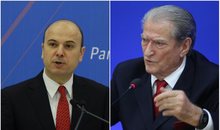
 Flash News
Flash News
Theth action, resident in tears: I built on my land with my life's expenses, the state should not destroy it
Directors targeted! After Fier and Durrës, Rama arrives in Elbasan
Name/Identification of the 23-year-old found dead near Shkopet Lake
IKM action in Theth, residents come out in protest
Reported missing by his father, 23-year-old found dead near Shkopet lake

by Mark Crawford
A famous quote says that in the last days, there will be wars and rumors of wars. If this prophecy was directed at the Balkans alone, it would have already been fulfilled many times over. Rumors of conflict have once again emerged in the Balkans, with consistent allegations of Russian influence in the stability of the region, and Europe’s Military Mission is reported as being concerned about Russian influence both in Republika Srpska and the Northern part of Kosovo.
Considering that Russian elections are approaching during March 15-17, and noting how much Eastern European “ex-Communists” love ties to historical dates and birthdays after listening to the Carlson-Putin interview, even a high-school-level analyst might suggest that NATO simply hire someone to run a regular internet search on what days of significance are upcoming, and prepare accordingly. Fortunately, for the Balkans, Putin’s Birthday does not roll around again until October 7th (which is the day that Russian influence allegedly played into Hamas’ attack on Israel in 2023).
Concerns about the region have reached the level that the US State Department announced that Secretary Blinken himself would be visiting Albania in February to reaffirm a common US-Albanian position regarding “stability in the Western Balkans” and “Ukraine’s Sovereignty and Territorial Integrity.” The Blinken visit will be well received in Albania. Individual Albanian politicians have shown that they will go to great lengths to promote the appearance of endorsement from the United States, and are even willing to break multiple American laws to accomplish this, as evidenced by the Bilal Shehu case. No laws are expected to be broken on this visit. A visit to the Afghan refugees hosted by Albania, a visit to the Albanian Administration, and the US Embassy all fall in line with the idea that Albanian politicians love a good photo opportunity, especially with American dignitaries.
Albania remains ostensibly pro-American, and an ally in cleaning up foreign policy complications, from Guantanamo Bay detainees to (almost) helping with the Syrian chemical weapons issue, to the Iranian Mujahideen, to Afghan refugees. Albania has recently expanded this model to help Italy with its immigration problems. Albania unquestionably makes positive, sometimes asymmetric contributions to the NATO team.
Still, Albania should not be given a free pass for what Congressman Raskin (D-MD)’s Oversight Committee report describes as "pervasive corruption in all branches of government and municipal institutions”. Moreover, Albania should not be given a free pass when attempting to pervert US officials and US security policy, insofar as the Oversight Committee and Department of Justice indictments describe senior members of the Albanian Government, specifically in the Department of Energy, as illegally incentivizing an active FBI senior counterterrorism agent on behalf of Russian petroleum interests. The Albanian officials involved will need to do more than show up in the overflow room of the National Prayer Breakfast to absolve themselves of the consequences of their actions, especially as The Global Initiative Against Transnational Organized Crime outlines allegations that the core practice of Russian petroleum laundering continues. American allies, NATO allies, cannot be given a free pass to compromise American officials, to fuel the Russian side of a conflict that America is actively opposing.
In bringing stability to the Balkans, the onus at the end of the day is ultimately on the people of the Balkans. However, the US could have, and can still, play a more effective role. This US Administration inherited a launching pad for creating peace through economic diplomacy but has chosen to allow that to sputter. It should be revived.
In 2017, I was a party to a series of meetings, starting in Jerusalem, and extending to Kosovo, which attempted to establish deeper economic ties between the two countries. What started as an economic initiative (an extension of the role that I played as Chairman of the American Chamber of Commerce), showed potential to have diplomatic implications. At that stage, I used my connections via my role as Global Vice President of Legislation of the US Republicans Overseas to pass the baton through Republicans Overseas members in Germany to Ambassador Richard Grenell, whom President Trump later appointed as special envoy for Serbia-Kosovo peace talks. Ambassador Grenell’s work resulted in “The Washington Agreement between Kosovo and Serbia” The agreement included steps toward energy diversification and independence. In Serbia’s case, this meant greater energy independence from Russia. The US Development Finance Corporation established greater ties to the region, including appointing a resident representative. US Embassies within the region began to promote greater US energy and investment, including the arrival of Exxon in Albania.
However, the current Administration’s interest in the region began to slowly unravel. The DFC regional representative was dismissed and not replaced. Investment support for new hydropower plants stalled. The US firms, including Exxon, whose appearance in promoting American gas exports had been heralded, made a quiet exit. Most recently, the American Government made the extraordinary step to not only passively abandon its gains in economic diplomacy, but to cut off American gas exports entirely. Is the United States now surprised that Russia’s hand of influence remains strong in the region?
America needs to wake up to the Balkan reality. It must stop tolerating individual bad actors who wrap themselves in the American flag to promote their politico-wealth while compromising American security. America should stop its current string of unforced errors in economic diplomacy and re-engage with the region, not just diplomatically and militarily, but financially, as initiated by the Washington Agreement. Otherwise, the best America and the Balkans should hope for in the face of wars and the rumors of war, is just a few selfies with a visiting State Department official.
Latest news

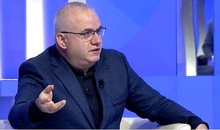
Hoxha: We will have a parliament that will surpass any comedy program!
2025-07-09 10:10:32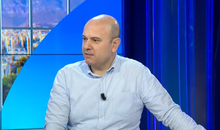

Directors targeted! After Fier and Durrës, Rama arrives in Elbasan
2025-07-09 09:53:57
Name/Identification of the 23-year-old found dead near Shkopet Lake
2025-07-09 09:42:34
IKM action in Theth, residents come out in protest
2025-07-09 09:34:54
Reasons why the EU has not imposed new sanctions against Russia
2025-07-09 09:18:35
DW: Online scams increase human trafficking
2025-07-09 09:01:29

Reported missing by his father, 23-year-old found dead near Shkopet lake
2025-07-09 08:42:13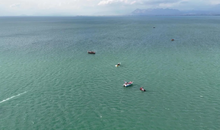

Horoscope, what do the stars have in store for you today?
2025-07-09 08:25:44
Sun and rain, Wednesday with unstable weather
2025-07-09 08:06:58
Posta e mëngjesit/ Me 2 rreshta: Çfarë pati rëndësi dje në Shqipëri
2025-07-09 07:52:02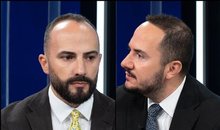

Tabaku: Salianji bore a political cost that no one in Albania has borne
2025-07-08 22:36:15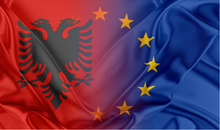


Sekretet për të shijuar verën si një ‘profesionist’
2025-07-08 21:45:06

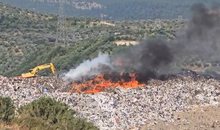
Albania's Waste Crisis: Toxic Smoke and Deep Governance Problems
2025-07-08 21:13:07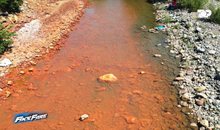
Alarming pollution in Fushë-Arrëz, copper factory waste turns the Fan River red
2025-07-08 21:07:14

Poll/ How do you assess the Prime Minister's intervention in local government?
2025-07-08 20:40:01
28 arrested in Italy and Spain for drug trafficking, including an Albanian
2025-07-08 20:24:14
Residents clash with police in Theth: We are on our land
2025-07-08 20:11:41
Death of 27-year-old in Lipjan, Osmani: To be investigated independently!
2025-07-08 20:06:52
Trump promises US will send more weapons to Ukraine
2025-07-08 19:54:25
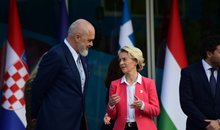
EU targets health, education, police and cadastre as areas of corruption
2025-07-08 19:23:34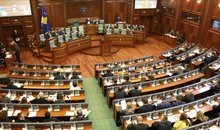
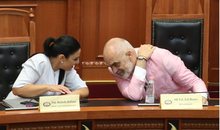

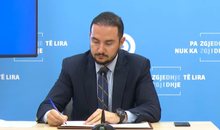

Salianji after his return: I did not oppose for functions, but for vocation
2025-07-08 18:23:15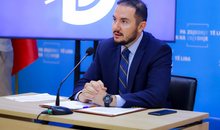
Will he run in the 2029 elections? Here's how Salianji answers
2025-07-08 18:16:09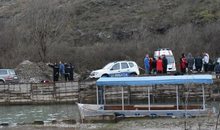
Boat captain drowns after diving into water to save two tourists in Shkodra
2025-07-08 18:05:12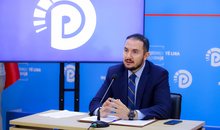
Salianji from the DP headquarters: I brought a drug trafficker to justice
2025-07-08 18:03:26
After Fier, Rama "landes" in Durrës, dismissals expected
2025-07-08 17:53:32
Ervin Salianji arrives at the blue headquarters, welcomed by supporters
2025-07-08 17:45:12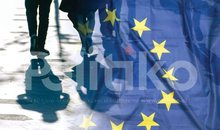
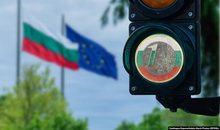
EU approves final steps for Bulgaria's Eurozone membership
2025-07-08 17:43:06

Zhupa after Salianj's release: Inspiration for every opposition member
2025-07-08 17:19:39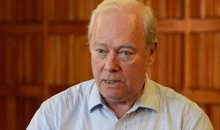
Actor David Killick passes away
2025-07-08 17:09:23



Threatened with dismissals, Rama arrives at the Fier municipality
2025-07-08 16:39:19
Extreme temperatures temporarily close Acropolis in Greece
2025-07-08 16:30:34

A plot of cannabis is discovered in Mazha, Kruja
2025-07-08 16:13:48
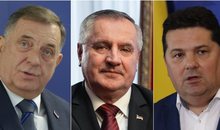
Republika Srpska allocates additional 22 million euros for lobbying in the US
2025-07-08 15:52:04

Spices that protect you from mosquitoes!
2025-07-08 15:30:03

Accident on the Vlora-Qeparo axis, one injured
2025-07-08 15:11:52
Berat, 17 years part of UNESCO's world heritage
2025-07-08 15:03:30
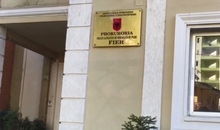

Cost of living increases, inflation rises to 2.4% in June, driven by food
2025-07-08 14:29:54
VIDEO/ Restaurant roof collapses in Italy, one victim and ten injured
2025-07-08 14:18:44
Requested release from cell, Supreme Court leaves Veliaj in prison
2025-07-08 14:07:41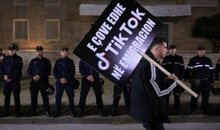
TikTok shutdown/ Austrian media: Rama benefited politically from the app ban
2025-07-08 13:48:25
Acropolis temporarily closed due to heat
2025-07-08 13:31:09



Salianj's release/Berisha: He was politically condemned by Rama and Xhafa!
2025-07-08 13:00:13

Knife attack on Peshkopia Boulevard
2025-07-08 12:44:10
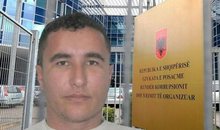
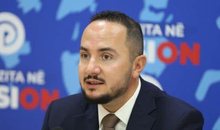
Fier Court decides on the conditional release of Ervin Salianj
2025-07-08 12:15:23
Cost of living increases, inflation rises to 2.4% in June due to food
2025-07-08 12:00:16


Requesting conditional release, Ervin Salianji arrives at the Fier Court
2025-07-08 11:16:36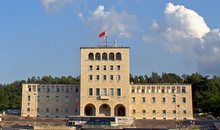
The first phase of university applications begins today
2025-07-08 11:10:52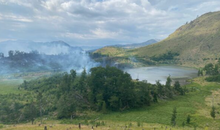
Fire in Lura, flames endanger the National Park
2025-07-08 10:53:43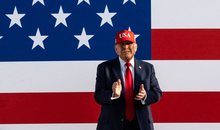
Trump warns of 35% tariffs on Serbia and 30% on Bosnia and Herzegovina
2025-07-08 10:37:32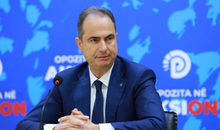
Thethi rooster and the dung cock
2025-07-08 10:24:01
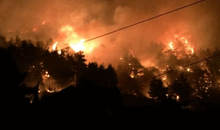
Fire in Dukat endangers Llogara National Park
2025-07-08 10:01:39
International drug search: 36-year-old arrested in Durrës (NAME)
2025-07-08 09:50:48
Thethi, tourists "criticize" modern trend
2025-07-08 09:39:54
Fire on Mount Dukat still active, Llogara National Park at risk
2025-07-08 09:28:12
Veliaj's appeal to be heard today in the High Court
2025-07-08 09:16:02
"Bad sign for democracy"/ Parliament neglects reporting by institutions
2025-07-08 09:04:56
Today's hearing at the Fier Court, Salianji requests conditional release
2025-07-08 08:56:39


Horoscope, what do the stars have in store for you today?
2025-07-08 08:16:19
Weather forecast/ How temperatures will vary throughout the day
2025-07-08 08:02:37
Morning Post/ In 2 lines: What mattered yesterday in Albania
2025-07-08 07:48:30

